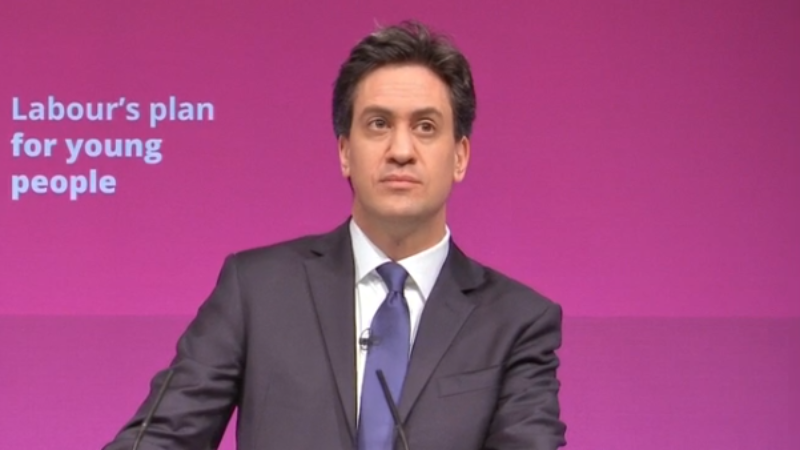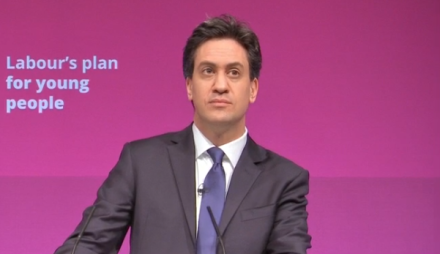
The next few weeks could see a lot happen – in 2010 we had Cleggmania and the Lib Dems bouncing from 3rd to 1st and back to 3rd, whilst Labour polled as low as 23% and as high as 33%, all in the short campaign.
And when the dust settles after 7th May Ed Miliband will either be written off as another in the list of Labour leaders who didn’t win a General Election (he would be in good company with Brown, Smith, Kinnock, Foot, Callaghan and Gaitskell just in the post-war era) or eulogised as the first since Wilson to bring us back to power after just one term in opposition.
Roy Jenkins described Tony Blair’s task in getting Labour into power in 1997 as “like a man carrying a priceless Ming vase across a highly polished floor”.
Taking that analogy further, Ed is just a couple of paces from the mantelpiece where the Ming vase belongs. Now, as the short campaign starts, is a good place to assess how he has done in getting it across the rest of the room. If we wait and analyse this on May 8th our view will be coloured by 20-20 hindsight – either it will have always been seen as obvious he was going to slip in the final few paces, or he will have made it and any doubts will have been forgotten in the excitement of victory.
The answer at this point is that he has done extremely well to get it this far.
The Labour Party in 2010 did indeed resemble a fragile vase. One of the reasons I supported Ed in the leadership election was that I thought he was the candidate who most understood the fragility and hollowed-out state of the party and its coalition of support after 13 bruising years in power, the controversy of events like the Iraq War, and the 16 year soap opera/psycho drama of Blair vs Brown and their rival courts.
Ed set out on a very carefully calibrated balancing act. To add new components to our coalition (primarily ex-Lib Dems alienated by the coalition and its austerity measures) without losing the existing base of support. To move the party on ideologically and in policy terms from the Blair and Brown era enough to respond to the 2010 verdict but not so much as to throw away the fundamentals of electability that had been learnt in our previous period in opposition. And to hold together a sometimes exasperatingly diverse political family including such disparate elements as Len McCluskey and a newly assertive Unite, and the leading Blairites on the other end of the spectrum.
I do not think anyone else could have managed this feat.

In the immediate aftermath of 2010 most of us were relieved the party had had as soft a landing as it did. We thought we were about to see 1979-1983 reenacted. We would have given our right arms to guarantee the scenario that we have now as we go into the short campaign:
- Ahead or only just behind in all the opinion polls (the overall picture is of every poll showing Labour and the Tories within the margin of error of each other).
- United, both in comparison to the Blair vs Brown era and, a genuine historic achievement, in comparison to the circular firing squad that followed our previous losses of power in 1931, 1951, 1970 and 1979.
- With Ed perceived as having won the first debate.
- With nearly 200,000 party members, up from 156,000 in 2009, and historically high levels of grassroots campaigning.
- With over 7,000 councillors, up from 4,400 before the 2010 election.
As for the “highly polished floor”, it couldn’t have been slipperier. Who would have foreseen in 2010 when things looked like a simple paradigm of Labour vs Coalition, heart vs head on austerity and cuts, that Ed would have had to negotiate UKIP becoming the third largest party and taking votes of Labour as well as the Tories, the Greens rising to 7 or 8%, and the reaction to the defeat of the Scottish independence referendum being an explosion in support for the SNP at Labour’s expense?
That Labour is still in the game and we could have a Labour PM in six weeks’ time isn’t an accident. It is down to the hard work of hundreds of MPs and candidates and thousands of activists. It is down to the commonsense and restraint of those politicians and activists in not descending into self-indulgent infighting but instead focusing on taking the fight to the Tories and Lib Dems. But it is also down to the careful balancing act carried out on this long walk to the edge of power by the man carrying the “priceless Ming vase”, Ed Miliband. Continuously underestimated by his enemies, he stands a good chance of being Labour’s seventh Prime Minister.



More from LabourList
Exclusive: Poll shows Starmer more trusted than PM on Middle East crisis
Revealed: Poll shows 1 in 4 Tory voters says Rayner faces ‘smear campaign’
‘Ignore the noise – the soft left is alive and well in Open Labour and beyond’